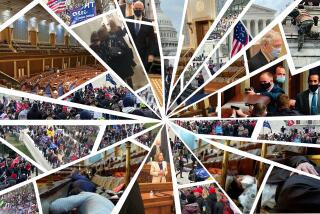Bush’s Brother Countersues Tokyo Group : Politics: Legal battle with reputed crime figures over business deal gone bad is expected to embarrass White House.
Prescott Bush, the President’s elder brother, Thursday escalated his legal battle with a group of reputed Japanese organized crime figures--a move certain to cause political embarrassment for the White House.
The Japanese group filed suit against Prescott Bush on May 5, claiming that he had reneged on an agreement to pay them $2.5 million as a result of a failed business deal. On Thursday, Bush filed a countersuit in U.S. District Court in New York City, claiming that he cannot be held liable for the $2.5 million because he was defrauded by the investors, who posed as legitimate businessmen.
He argued that the Japanese group had tried to use him and “the Bush name” to launder money and obtain an illegal foothold for their organized crime activities in the United States.
In his countersuit, Bush alleged that Munenobu Shoji, chairman of the Japanese firm West Tsusho Co. Ltd., even sought unsuccessfully to obtain a meeting with President Bush during negotiations over the deal.
As the legal battle unfolds, it is sure to draw continued public attention to allegations that Prescott Bush has made large sums of money in international business deals by trading on his reputation as the President’s brother.
The suit and countersuit grow out of an unorthodox business deal that Bush engineered in 1989 by persuading the Japanese group to invest $5 million in a now-defunct firm owned by a flamboyant international entrepreneur, Charles Abrams, who has a reputation for using well-known people such as Bush to lend credibility to unsuccessful ventures.
West Tsusho is a Tokyo-based holding company that Japanese authorities consider to be a family business of the Inagawa-kai, one of Japan’s three largest gangster syndicates. In his countersuit, Bush said that he was unaware of the firm’s connections to organized crime in Japan when he did business with the firm.
Bush, who at the time was serving as a paid adviser to Abrams’ company, Asset Management International Financing & Settlement Ltd., received fees of at least $500,000 for engineering the deal between Asset Management and West Tsuhuo, according to the investors’ suit. The Japanese have said that they invested in Asset Management primarily because they were persuaded to do so by a man they knew to be the President’s brother.
In his response to the suit against him, Bush did not deny that he had once agreed to pay West Tsusho $2.5 million if Asset Management was liquidated within five years. But he contended that the agreement was null and void by the time the company went bankrupt last year. In addition, he said that he was released from the agreement by Shoji on Sept. 8, 1989, during a conversation in Tokyo.
Bush also said that he was not liable for the money because West Tsusho’s officers “deliberately concealed” that they had been charged by Japanese authorities with engaging in a black market scandal in the Tokyo metal market and that they were “engaged in Japanese racketeering activities, including securities fraud, extortion, political corruption and international fraud.”
He said that they also did not reveal plans to use him and his ties to the President “to pierce the American market with illegal dollars in their control.”
More to Read
Get the L.A. Times Politics newsletter
Deeply reported insights into legislation, politics and policy from Sacramento, Washington and beyond. In your inbox three times per week.
You may occasionally receive promotional content from the Los Angeles Times.






